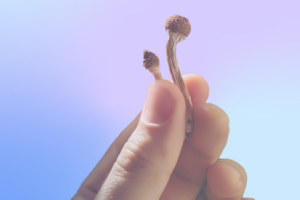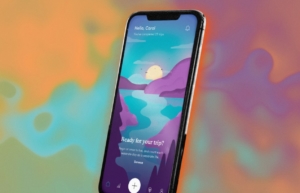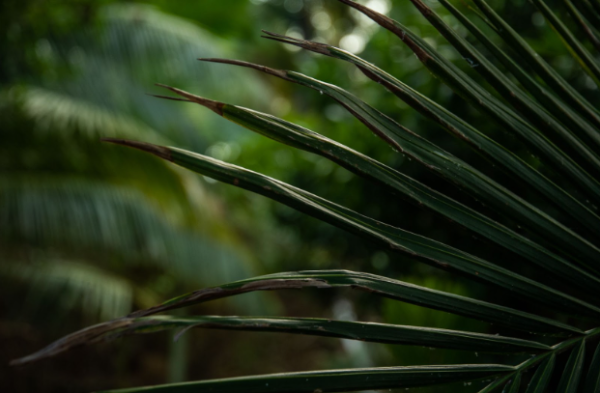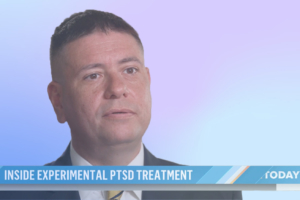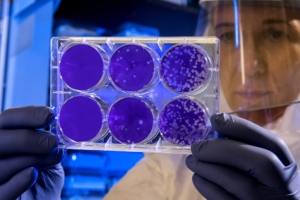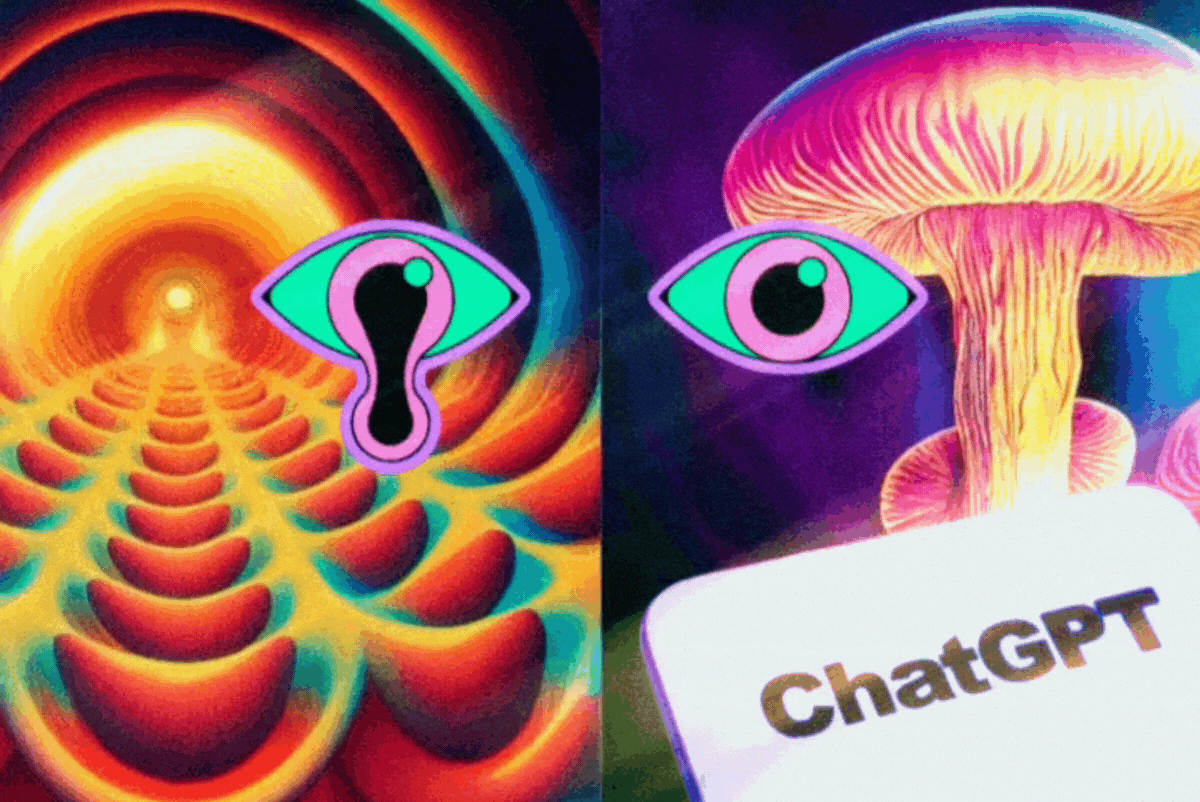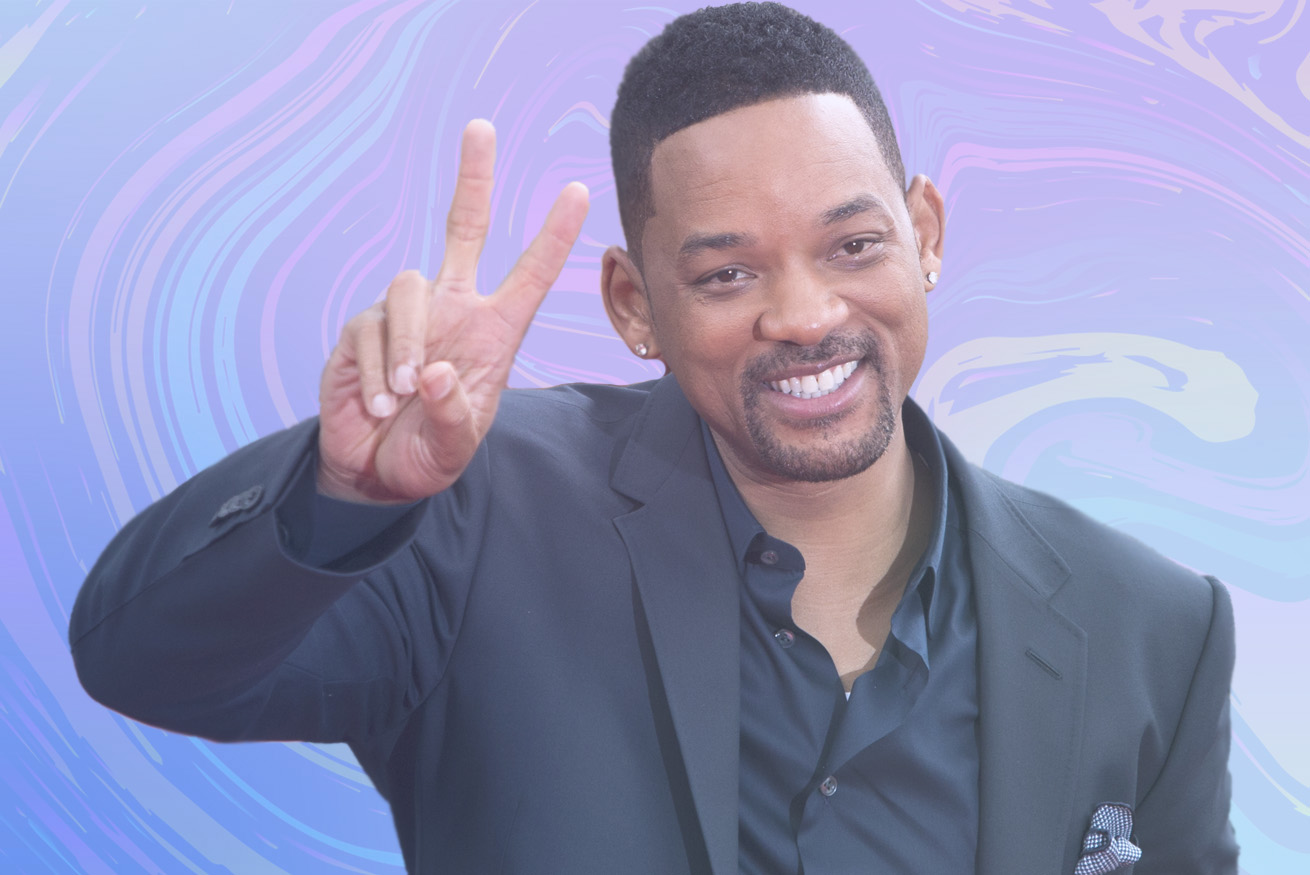
Did anyone have Will Smith becoming an ambassador for psychedelics on their 2021 bingo card?
The blockbuster movie star, arguably one of the biggest celebrities alive on the planet today, first stepped out of the psychedelic closet this past September, when a GQ cover profile briefly mentioned Smith had participated in over a dozen ayahuasca ceremonies. It was one of many revelations from his new memoir, Will, which is now available wherever books are sold.
“This was my first tiny taste of freedom,” Smith writes of his first experience drinking the sacred plant medicine brew, which Indigenous peoples of South America have been using for thousands of years. “In my fifty-plus years on this planet, this is the unparalleled greatest feeling I’ve ever had.”
The two-sentence tease of Smith’s psychedelic experience comes from a chapter appropriately titled Surrender, in which the Fresh Prince writes about some very old truths he learned later in life during a quiet separation from his wife, Jada Pinkett Smith (who has also recently revealed she has benefited from psychedelics). The actor turned to Michaela Boehm—an author, public speaker, and counselor trained in Jungian psychology, trauma, and relationship therapy—to guide him on a long journey inward to rekindle his spirit of exploration and adventure.
“Explore. Experience. Experience. Expand,” was the maxim Boehm drilled into the Oscar nominee’s mind, which was expanding through a variety of exercises before psychedelics even entered the picture. First, he followed Boehm’s advice to develop a relationship with the ocean, or as he refers to it now, “the Big She.” He faced his lifelong fear of water to learn how to swim, took up scuba diving, swam with sharks, and even did some deep-sea submarining to become “fully attuned, attentive, and committed to understanding her.”
“I settled into the acceptance of my powerlessness, which strangely liberated me,” Smith writes. “‘Surrender’ had always been a negative word for me—it meant losing or failing or giving up. But my burgeoning relationship with the ocean was exposing that my sense of control was actually an illusion.”
“Surrender transformed from a weakness word to an infinite power concept. I had had a bias toward action—thrusting, pushing, striving, struggling, doing—and I began to realize that their opposites were equally as powerful—inaction, receptiveness, acceptance, non-resistance, being,” he continues. “Stopping was equally as powerful as going; resting was equally as powerful as training; silence was equally as powerful as talking. Letting go was equally as powerful as grasping. ‘Surrender’ to me no longer meant defeat—it was now an equally powerful tool of manifestation.”
That is some beautiful wisdom that anyone can integrate into their own lives for personal growth, but surrendering is also an essential practice for psychedelic exploration, as Smith found out after a friend recommended he try ayahuasca.
Before diving into Smith’s psychedelic revelations, however, a little disclaimer from the author: “I do not condone, nor do I suggest, the use of ayahuasca or any substance without professional medical prescription and supervision. I struggled with the decision of whether to even share my journey with ayahuasca in this book—the only reason I’m writing about it here is because it’s the truth of my experience.”
Will Smith Meets ‘Mother’
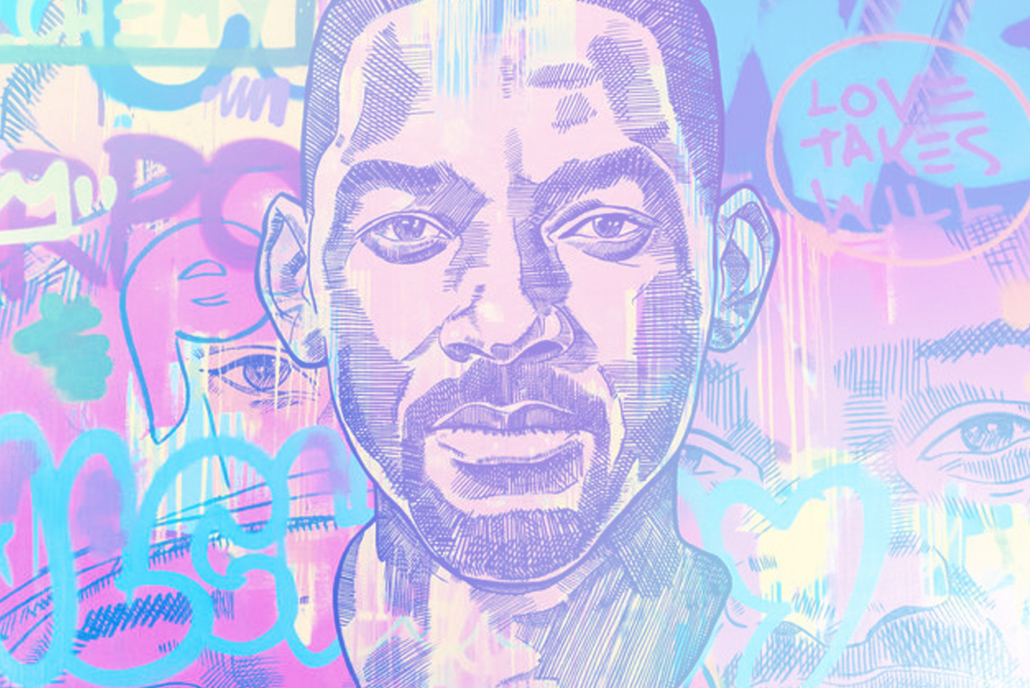
Will Smith traveled to Peru for the first of his 14 ayahuasca ceremonies. It was held in a small cabin under the guidance of a female shaman, who simply told the superstar, “The vine will lead you. Just surrender. Let yourself be guided. I’m only here to help you navigate the journey.”
Some enter into psychedelic exploration through meditation; Smith fell asleep on his floor mat after an hour of waiting for the vine of the soul to kick in. “When I woke up, I was floating in deep outer space.”
He compares the visual experience to that of a Picasso painting and writes he sensed a presence behind him—a female being he would come to know as “Mother,” but never actually see during this and other psychedelic journeys.
“She is everything: lover, teacher, mother, protector, guide. She is all I’ve ever dreamed of, and everything I’ve ever wanted. I can tell she knows everything I need to know and how to get everywhere I want to go,” he writes. “She is my goal, my solution, my answer. She is the top of the mountain, and the sky beyond.”
That comforting female presence is common in trip reports from across the psychedelic spectrum but is especially common during ayahuasca ceremonies. In fact, Mother Ayahuasca is an Amazonian goddess who Indigenous people worship. “Some people come away from drinking ayahuasca thinking it is a very real, living entity,” anthropologist Christine Holman of Arizona State University told Science Notes. “The people that believe in her believe that very strongly. They call her Mother Ayahuasca.”
Smith’s account, however, suggests this “Mother” may simply be our own consciousness manifesting in a form the individual ego is comfortable with to be guided through the process of dissolution, which is really the ultimate psychedelic experience, commonly referred to as “ego death.”
The actor writes in his book that when he asked this entity where he was, she laughed and told him, “This is not a place, silly.”
“It’s you,” she told an incredulous Smith, who responded: “Wait a minute. All this is me? I’m this beautiful?”
“Of course you are.”
Freedom From Egoic Bondage
Smith writes that this encounter opened a floodgate of emotion that led him to purge “a lifetime of insecurities, self-doubt, and inadequacies.”
“If I’m this beautiful, I don’t need #1 movies to feel good about myself,” he continues in the book. “If I’m this beautiful, I don’t need hit records to feel worthy of love. If I’m this beautiful, I don’t need Jada or anybody else to validate me. If I’m this beautiful, and I have this internal sanctuary I can always return to, then I don’t need anyone to approve of me. I approve of me. I am enough.”
And you are, too.
We all are.
That is the simple truth expounded by modern spiritual luminaries and self-help gurus, as well as history’s great saints and sages, like Ramana Maharshi, who recommended we stop inquiring if there is a God and instead start inquiring, “Who am I?” And from the Eastern spiritual perspective, you are God. “Tat tvam asi” is a Hindu aphorism that translates to “thou art that.” You are what you see, as Mother told Will Smith during his deeply spiritual experience, in which subject and object collapsed into a pure state of being.
“Self-inquiry alone can reveal the truth that neither the ego nor the mind really exists, and enables one to realize the pure, undifferentiated Being of the Self or the Absolute,” Maharshi once told a disciple. “Having realized the Self, nothing remains to be known, because it is the perfect Bliss; it is the All.”
Alan Watts—a Buddhist scholar, philosopher and author, who wrote a book about his own psychedelic explorations —famously put it in other words: “You are the universe experiencing itself.”
It’s a bold claim, and one not easily understood by the Western mind without direct experience. Psychedelics, as Smith’s account illustrates, can serve as a portal into that mystical state—often described by psychedelic study subjects as “ineffable,” meaning, it’s beyond words and defies description. It must be experienced to be believed.
But not every experience is the same, and they’re not always pleasant, either. Smith writes in his memoir that out of 14 ayahuasca ceremonies he participated in over the course of two years, Mother only showed up for eight.
“Three of the times that she did not appear were among the most hellish psychological experiences I’ve ever endured,” he writes, but spares the reader details of those nightmare trips.
Silence Is Golden
Smith writes that each time Mother appeared, she had detailed advice and instructions. Although his second trip was very different from the first, it was just as profound.
“Mother repeated, for what felt like five hours straight, ‘Stop talking.’ She said it so many times I wanted to bang my head on the floor,” he writes. “She was referring to the constant inner chatter that runs incessantly in my head—planning, strategizing, debating, assessing, critiquing, self-judging, questioning, doubting.”
The breaking point came at dawn, when Smith noticed that chatter had finally ceased. “It was euphoric,” he writes. “Mother let me bathe in the peace of my inner quietude for about 40 minutes. Then, without words, she conveyed why I needed to stop talking.”
“She had watched me batter myself for so many years trying to impose my Will on the world,” he continues. “Her point was, if I stopped talking and thinking so much, I could see and sense the universal tides and I could align my energies to them and achieve twice as much with half as much effort.”
He concludes his chapter dedicated to surrendering with this nugget of wisdom: “Minimizing my talking became my practice for maximizing my awareness. I had always seen the world as my battlefield; I now understood that the true combat zone was my mind.”
Enough Is Enough
Will Smith’s ayahuasca experiences only fill up eight of the 412 pages in this excellent memoir, co-written by New York Times bestselling author Mark Manson (The Subtle Art of Not Giving a F*ck) and published by Penguin Press, but there is so much more wisdom to absorb if you decide to pick up a copy for yourself.
We’ve all heard the expression “money doesn’t buy happiness,” yet culturally, there seems to be collective disbelief. Instead, work hard, play hard has been the cliché embraced by those hustling and grinding their way toward the “American dream.” Many out there likely look up to Smith as a living portrait of that dream, however, the 53-year-old Hollywood icon makes it clear in Will that even all the way at the top, living the dream is a hollow pursuit without a strong foundation of self-love and inner peace.
In the chapter preceding “Surrender,” Smith writes about “Retreat,” detailing a few humbling experiences while taking a break from his lavish celebrity lifestyle. He ditched his entourage and first-class accommodations to visit an ex-girlfriend and her family in Trinidad, where a sailing excursion forced him not just to confront his fear of water, but a lifelong aversion to doing nothing at all.
“I was trapped; I felt like a caged animal. I was getting . . . angry. How dare they waste my valuable time like this?” he writes. While processing these emotions he had an epiphany: “I became addicted to working, to grinding, and obsessively pursuing perfection. But there was a deeper issue at play. I saw downtime as the enemy.”
The man who had everything suddenly realized he couldn’t sit still, relax and be comfortable while floating around a tropical island paradise with a few locals.
He recalls a flash of thoughts: “How many more consecutive #1 movies do I need? How much money would it take for me to feel safe and secure? How many Grammys or Academy Awards do I need to feel loved and approved of?“
“When will enough be enough?” he asks before getting to the root of the disease plaguing the human mind. “The problem is, the more you get, the more you want. It’s like drinking saltwater to quench your thirst. We develop a tolerance that makes us need more just to get the same high. I started to recognize the game, the trick, the insanity, the carrot on the stick.”
“I had never liked vampire movies,” the I Am Legend star continues, “but I suddenly understood their mythology—they are a metaphor for insatiable human hunger, unquenchable thirsts, and chronic dissatisfaction—the attempt to fill a spiritual hole with external things.”
So, the biggest revelation from this memoir is not really about psychedelic plant medicine at all. Rather, it’s a realization in the mind of one of the most successful men alive today that mirrors one Taoist sage Lau-tzu had written down in the Tao Te Ching roughly 2,500 years ago: “He who knows he has enough is rich.”
Will Smith is back in theaters this weekend with the release of biopic King Richard, in which the actor portrays the father of tennis champions Venus and Serena Williams. The critically acclaimed drama is also streaming on HBO Max.
